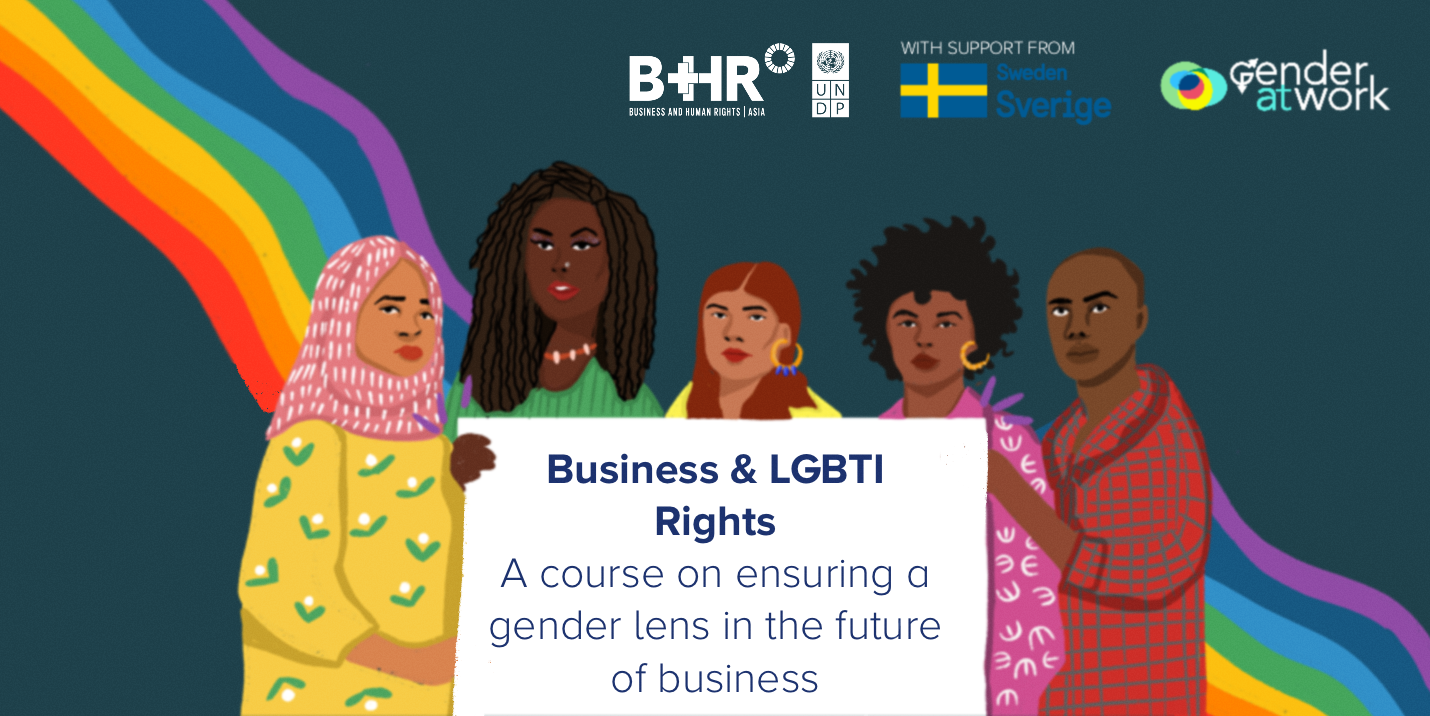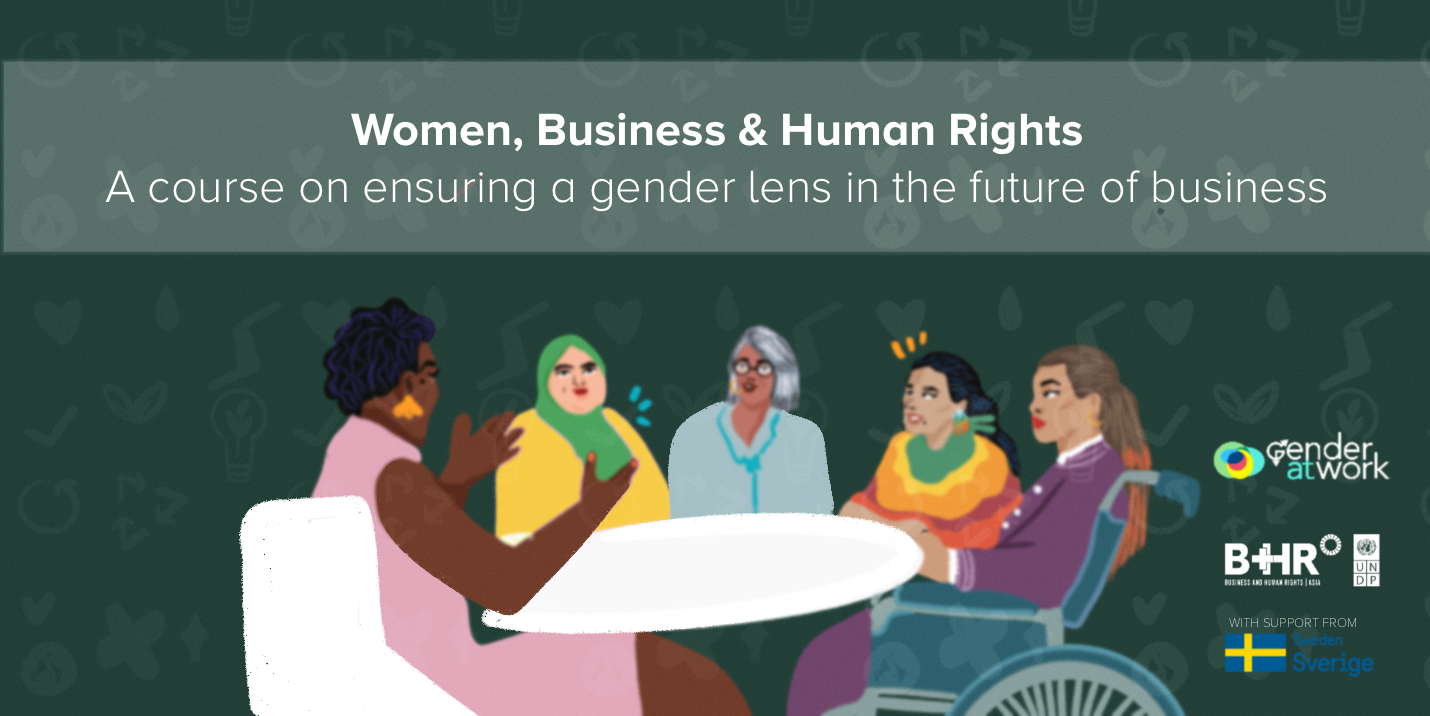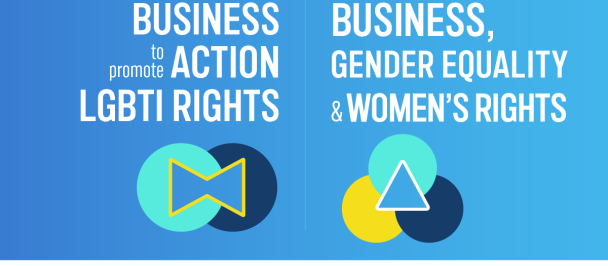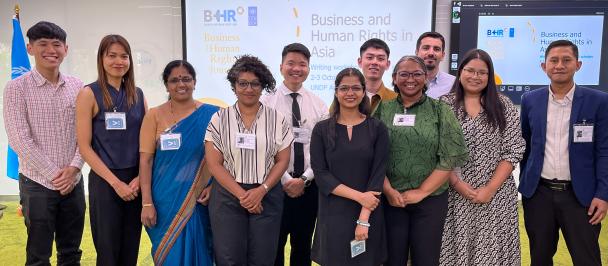The future of business is inclusive. Research has shown that more diverse and inclusive workplaces yield better organizational outcomes, including higher growth, greater innovation, and higher employee retention.
To promote workplaces that are more inclusive of different gender identities and sexual orientations, UNDP B+HR in Asia – with support from the Government of Sweden and in partnership with Gender at Work – launched a series of trainings for the private sector. The trainings aim to explore intersections between gender and business and human rights and enable participants to critically analyse and reform policies and practices in line with international standards and create more diverse and inclusive workspaces.
A two-day interactive training on 14-15 December for Thai companies provided an overview of why businesses should take human rights seriously, and unique considerations for protecting and respecting the rights of people in the lesbian, gay, bisexual, trans and intersex (LGBTI) community.
“For an organization to be truly inclusive, we need to transform our workplaces,” said Zainab Patel, Head of Diversity at KPMG in India, sharing her lived reality as a transgender woman working in several countries in Asia. She also outlined the issues affecting transgender employees and an approach to making a safe in inclusive workplace that considers through three perspectives: legal, business, and reputational.
Deryne Sim, a media and entertainment lawyer and spokesperson for Pink Dot, outlined the operational challenges for LGBTI inclusive companies, including the experience of Pink Dot in navigating relevant laws in Singapore.
Other speakers included Midnight Poonkasetwattana, Executive Director of APCOM; Faith Sadicon, Program Officer – Asia and Pacific, OutRight; and Scot Jones, Programme Manager, LGBT+ at Community Business; and Salil Tripathi, Institute of Human Rights and Business; and Harpeet Kaur, Business and Human Rights Specialist at UNDP.
The trainings were underpinned by the foundational principles of the UN Guiding Principles on Business and Human Rights (UNGPs), the global Standards of Conduct for Business to Tackle Discrimination against LGBTI People, and the diverse experience of the speakers. Throughout the training, participants were asked to reflect on the current policies in their workplaces, how those apply to LGBTI people, and ways to make the workplace more diverse and inclusive.
A five-part training series on Women, Business and Human Rights was also launched on 13 December. During the launch, Salil Tripathi provided a broad chronology of business and human rights along with examples of the negative outcome when business do not consider women’s rights in their operations.
The training will take place through February using both virtual classrooms and asynchronous learning tools, and will cover a range of issues from gender diversity in the workplace and women as workers, to how to build feminist economies.
Both trainings will be hosted on the Gender at Work Institute learning platform.

 Locations
Locations


